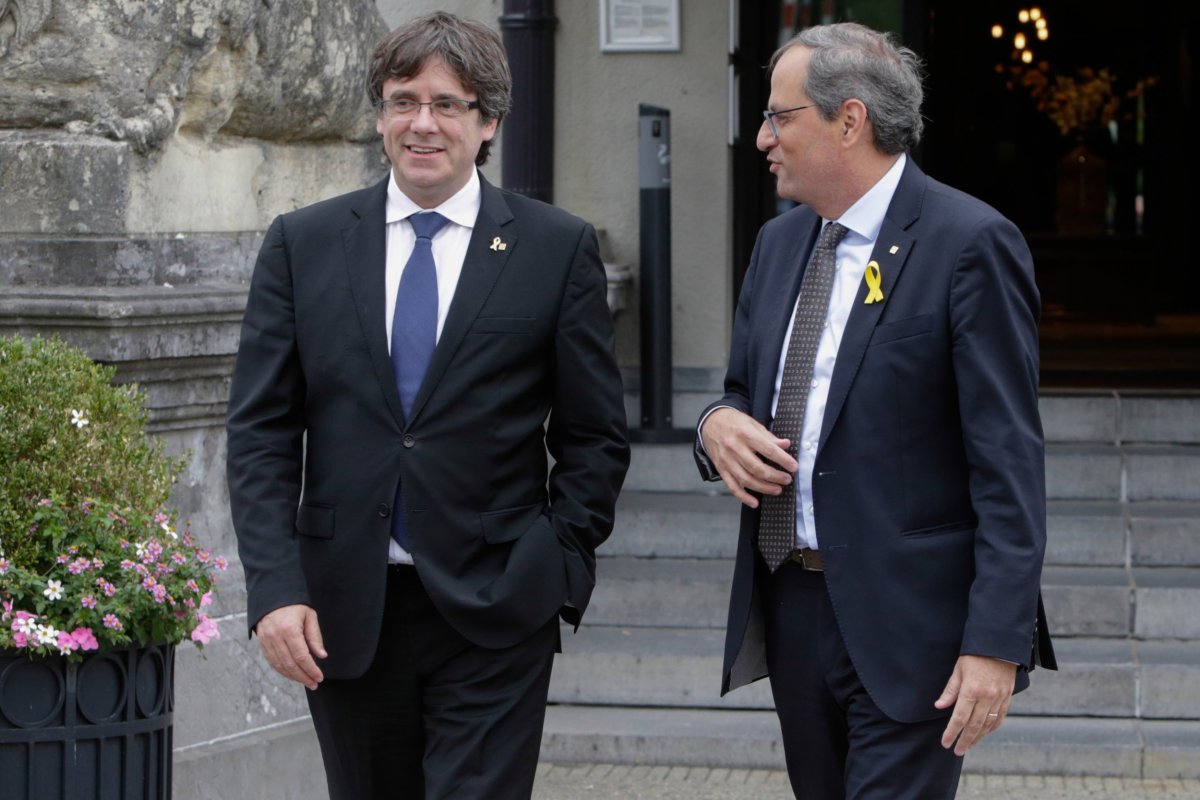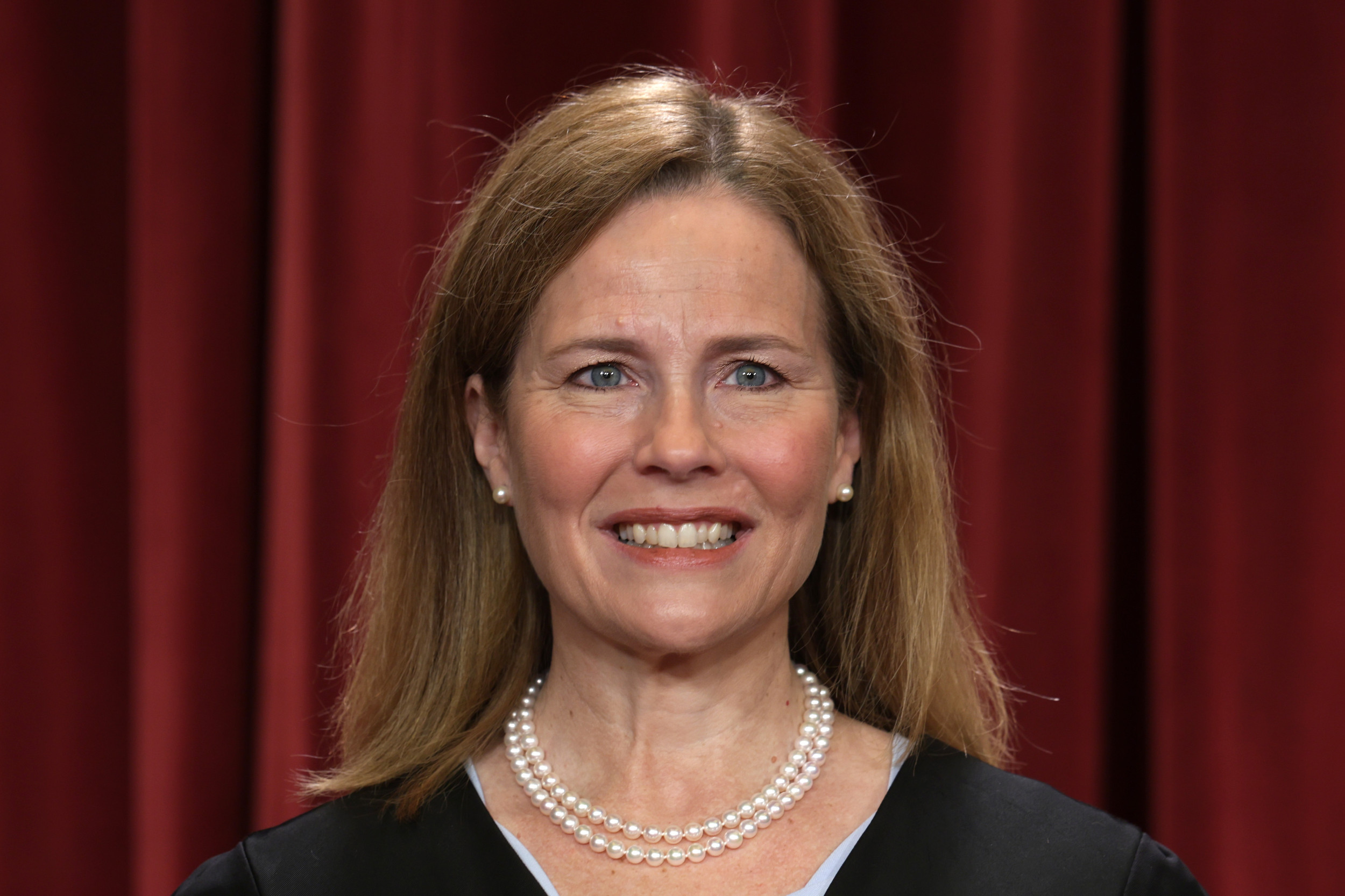The undersigned, Spanish academics and professionals, submit the following response letter to the opinion article "Carles Puigdemont and Quim Torra: It's been a year and Catalonia is still not free."
Spain is a European nation enjoying economic prosperity and full political freedom for more than 40 years, since the country became a democratic nation under the Constitution of 1978. The Spanish Constitution was voted in a referendum by all Spanish citizens. Catalonian participation in this referendum was 67.9 percent, with over 90 percent voting approval (surpassing the approval percentage of the Madrid region).
To amend the Spanish Constitution to permit regional separation (now contrary to the existing Constitution) would require a poll involving all Spanish citizens. According to a recent poll conducted by GESOP, it was estimated that less than a majority of Catalans (about 42 percent) would be in favor of participating in a binding referendum for secession.
The events involving the use of force by Spanish national police were precipitated by the seditious Catalan government that deceived Catalans in the secessionist ranks regarding the consequences of the illegal referendum of October 1, 2017, encouraged them to participate, and instructed the Catalan police to turn a blind eye to the mandate of the Spanish Constitutional Court that had declared the referendum illegal.
Furthermore, the referendum was not an accurate reflection of the views of all Catalans, since those who recognized the illegality of the referendum did not vote.
There are no political prisoners in Spain. The Catalan politicians that are under preventative detention, provided by the Spanish law and pending trial, and those who fled to avoid criminal charges, have created their own predicament when they violated the Spanish Constitution and the Catalan Statute of Autonomy (the law of self-government in Catalonia) and issued an illegal proclamation of an independent Catalan Republic on October 27, 2018.
It is unjustifiable that they expect to avoid the consequences of these actions. Likewise, the pro-secession activists are not in preventative detention for their ideas but because they encouraged their followers to take to the streets and obstruct the work of the judiciary officers in performance of their duties.
These politicians and activists are in preventative detention on account of charges for serious crimes under the Spanish Criminal Code brought against them by the Public Prosecutor's Office—including rebellion, and where appropriate, sedition—and during the investigation of a Supreme Court Magistrate (in Spain the investigation is conducted by a judge, not a prosecutor) to open the hearing phase of the case.

A similar result would prevail in the United States where its Supreme Court has proclaimed that the United States Constitution has created "an indestructible Union of indestructible States."
This point was aptly illustrated by the response in 2013 of President Obama to the petition of over 100,000 Texans requesting support for the secession of Texas. The President's spokesman responded that the Constitution "did not provide a right to walk away from the [Union]" and he further stated that not secession but "participation in, and engagement with, government is the cornerstone of democracy."
Accordingly, we believe that the answer to differences of regional opinions in Spain is not secession but engaged citizenship at the level of Spain's autonomous regions. Precisely, the Spanish system of regional self-governing, and particularly in the case of Catalonia, has the highest degree of autonomy in Europe.
That being said, we wish to highlight two major fabrications on which pro-secession parties built their agenda over the last several years:
Secession is a win-win situation: The protest movement that spread throughout Spain during the difficult years of the past economic crisis was used by secessionist forces in Catalonia to create a populist environment that portrayed the rest of Spain as a backward country exploiting a more progressive and affluent Catalan region. It was argued that, as an independent nation-state, Catalonia would become financially solvent, a more prosperous and just society, and that it would be readily accepted in the European Union. These promises did not withstand rigorous analysis and were refuted by the facts and subsequent events.
We are one people, one culture, one language: Although it is true that Catalonia has its own history, culture and language, this distinct heritage has been an instrument of manipulation chiefly propagated in the schools and by the government-supported Catalan public media. Catalonia is a bilingual, diverse society, with a large number of citizens whose roots lie in other regions of Spain. These Catalans are torn at the thought of forced separation. Moreover, Catalans of all origins and backgrounds opposing the secessionist project feel disengaged and disenfranchised; they are made to believe that they don't belong.
Before "operation secession" began, the mixed population of Catalonia had enjoyed a peaceful and fruitful existence. Mr. Torra and Mr. Puigdemont's delusion of secession has shattered our precious coexistence. Catalans—friends, family and neighbors—are deeply and bitterly divided as a consequence of their political adventure. We here appeal to their sense of civic responsibility to redress this situation before it is too late.
Signed by:
- Alfonso Valero, Lawyer (Spain) and Solicitor (England and Wales), founder of "Foro de Profesores" (Professors' Forum")
- Montserrat Ginés, Associate Professor of Technology and Culture (retired), Universitat Politècnica de Catalunya)
- Mariana Castells, M. D.; Ph.D. Professor in Medicine, Harvard Medical School, Boston
- Luis Miguez Macho, Professor of Administrative Law, Universidad de Santiago de Compostela
- Ignacio Fernández Sarasola, Associate Professor of Constitutional Law, Universidad de Oviedo
- Ignacio Morgado, Professor at Universidad Autónoma de Barcelona
- Carolina Marin Pedreno, Solicitor and Lawyer
- José María Rosales, Professor of Moral and Political Philosophy, University of Málaga
- Juan Jose Rubio Guerrero, Full Professor in Public Finance, Dean. Faculty of Law and Social Sciences, Castilla-La Mancha University
- Antonio Peña Freire, Associate Professor of Philosophy of Law, Universidad de Granada
- Carlos Vidal Prado, Professor of Constitutional Law, Universidad Nacional de Educación a Distancia
- Jorge Calero, Professor of Applied Economics, Universidad de Barcelona
- Julio Iglesias de Ussel, Professor of Sociology, Madrid
- Pedro Tent Alonso, Adjunct Lecturer of Private International Law, Universitat de València
- José Manuel Cansino Muñoz-Repiso, Professor of Applied Economics, Universidad de Sevilla and Research Associate at Universidad Autónoma de Chile
- Javier Roldán Barbero, Professor of Public International Law and International Relations, Universidad de Granada
- Fernando Jiménez Sánchez, Associate Professor of Political Science, at the University of Murcia (Spain)
- Juan Antonio García Amado, Professor of Philosophy of Law, Universidad de León.
- José J. Jiménez Sánchez, Professor and member of "Foro para la Concordia Civil" (Forum for Civil Concord)
- Araceli Mangas Martín, Full member of the Royal Academy of Moral and Political Science. Professor of International Public Law and International Relations, Unversidad Complutense de Madrid
- Luis Perdices de Blas, Professor of History of the Economic Thought, Universidad Complutense de Madrid
- José Torné-Dombidau y Jiménez, Associate Professor of Administrative Law, Universidad de Granada and President of FORO PARA LA CONCORDIA CIVIL (Forum for Civil Concord)
- César Nombela-Arrieta, Assistant Professor, University of Zurich
- María Fraile, Professor of Constitutional Law, Universidad Carlos III de Madrid
- Javier Fernández Sebastián, Professor of History of the Political Thought, Universidad del País Vasco, Bilbao
- Lola Peláez, Professor of Spanish, Simmons University, Boston
- Camilo José Cela Conde, Emeritus Professor, University of the Balearic Islands (Spain)
- Javier Tajadura, Professor of Constitutional Law, Universidad del País Vasco
- Rafael Dobado González, Professor at Universidad Complutense de Madrid and Corresponding Member of the Real Academia Española (Royal Spanish Academy)
- Carlos M. Gutiérrez, Professor of Spanish, U of Cincinnati
- Miguel Ángel Quintana Paz, Associate Professor of Moral and Political Philosophy, Universidad Europea Miguel de Cervantes, Valladolid
- Rafael Palomino Lozano, Professor at the School of Law, Universidad Complutense de Madrid
- Manuel Atienza, Professor of Philosophy of Law, Universidad de Alicante
- Ángel Sánchez-Navarro, Professor of Constitutional Law, Universidad Complutense de Madrid
- Carlos Diaz, Aerospace Engineer, Engine Systems, Berlin, Germany
- Juan Ramón Fernandez Torres, PhD in Law, Chaired Professor of Administrative Law, Universidad Complutense de Madrid (Spain)
- Carlos Ruíz Miguel, Professor of Constitutional Law. Director of the Center for Studies on Western Sahara, Universidad de Santiago de Compostela
- Eduardo Butragueño Cerviño, Professor of Philosophy (retired), Universidad de Barcelona
- Manuel Borrero, Economist (Portugal)
- Dr. Leonor Zozaya-Montes, PhD Assistant Professor, University of Las Palmas de Gran Canaria (Spain),Integrated Member of CHSC, Universidade de Coimbra (Portugal)
- Pepe Moltó, Musician and musical instrument builder
- Rafael Arenas García, Professor of Private International Law, Universidad Autónoma de Barcelona
- Manuel Fernández Salmerón, Associate Professor of Administrative Law, Universidad de Murcia
- Isabel Fernández Alonso, Associate Professor of Communication, Universidad Autónoma de Barcelona
- Manuel Parra Celaya, Doctor in Philosophy and Educational Sciences at Universidad de Barcelona. Secondary School teacher (retired)
- Rafael Sánchez Saus, Professor of Medieval History, Universidad de Cádiz
- Cristina Santin, Senior Lecturer, Biosciences Department, Swansea University, UK
- Gorka Maneiro, Spokesman for "Plataforma Ahora"
- Paz Garzón González, Labor and Social Security Department Inspector (retired)
- Sebastián Zambelli, PhD., Political Science
- Roberto Muñoz Bolaños, Professor at Instituto Universitario General Gutiérrez Mellado (UNED)
- Carlos Flores Juberías, Professor of Constitutional Law, Universitat de València
- Prof. Dr. Juan V. Oltra Gutiérrez
- Mikel Arteta, PhD., Moral and Political Philosophy
- Antonio Bueno Armijo, Associate Professor of Administrative Law, School of Law and Economic Sciences and Business and Administration, Universidad de Córdoba
- David Jiménez Torres, Adjunct Lecturer, Universidad Camilo José Cela
- Julio Carabaña, Honorary Professor, Universidad Complutense de Madrid
- Angela Herrero, Anthropologist
- Antonio Hermosa Andújar, University Professor
- Mauricio Suárez, Chair in Logic and Philosophy of Science, Complutense University of Madrid, and Research Associate, London School of Economics
- Helena Torroja, Tenure Senior Professor of Public International Law, Universidad de Barcelona
- Alfonso Ruiz Miguel, Professor of Philosophy of Law, Universidad Autónoma de Madrid
- Jose Javier Olivas Osuna, Political Scientist at the London School of Economics and Political Science
Alfonso Valero is a qualified lawyer in Spain and England and Wales. After practicing law in Spain and England, he became a full time law lecturer and founded de "Foro de Profesores," a group of academics and professionals in support of a united Spain and the rule of law.
Montserrat Ginés was an Associate Professor of Technology and Culture at Polytechnic University of Catalonia until her recent retirement in 2017. She is a member of "Foro de Profesores."
The views expressed in this article are the authors' own.
Uncommon Knowledge
Newsweek is committed to challenging conventional wisdom and finding connections in the search for common ground.
Newsweek is committed to challenging conventional wisdom and finding connections in the search for common ground.
About the writer
To read how Newsweek uses AI as a newsroom tool, Click here.








